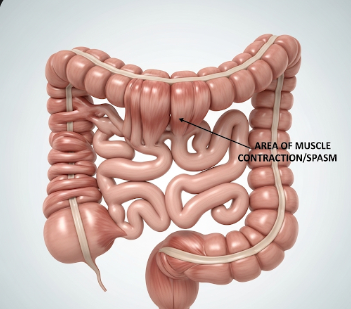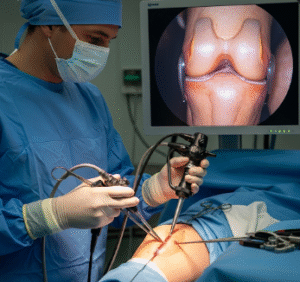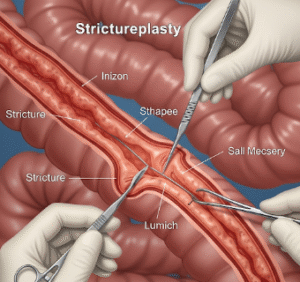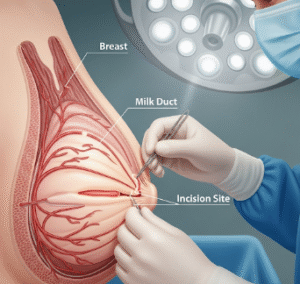Overview
Colon spasms, also referred to as intestinal spasms or colonic cramps, are sudden, involuntary contractions of the muscles in the large intestine (colon). They can cause abdominal pain, bloating, and changes in bowel habits, ranging from mild discomfort to severe, debilitating pain.
In South Korea, gastroenterology clinics offer specialized evaluation and treatment for colon spasms, combining diagnostic tests, dietary counseling, medications, and lifestyle management to reduce symptoms and improve digestive health.
Key Facts
Highlights:
➡️ Colon spasms are commonly linked to irritable bowel syndrome (IBS), infections, or inflammation.
➡️ Symptoms may include cramping, bloating, diarrhea, constipation, or urgent bowel movements.
➡️ Triggers include stress, certain foods, hormonal changes, and gastrointestinal infections.
➡️ While colon spasms are usually not life-threatening, persistent or severe symptoms warrant medical evaluation.
➡️ South Korea provides state-of-the-art gastroenterology care for diagnosis and long-term management of colon spasms.
What is Colon Spasms?
Colon spasms are involuntary contractions of the colon’s muscular wall, resulting in temporary obstruction of bowel movement and discomfort.
Key characteristics:
- Pain: Cramping, sharp, or intermittent abdominal pain
- Location: Can occur in any part of the colon, often lower abdomen
- Triggers: Food, stress, dehydration, or underlying gastrointestinal conditions
- Duration: Short-term (minutes) or long-term (chronic recurring episodes)
These spasms are functional disturbances of the colon rather than structural abnormalities, though they may signal underlying conditions like IBS, inflammatory bowel disease (IBD), or infections.
What Symptoms are Related to Colon Spasms?
Symptoms commonly accompanying colon spasms include:
- Abdominal cramping or pain
- Bloating and gas
- Diarrhea or constipation, sometimes alternating
- Urgent or frequent bowel movements
- Mucus in stool in some cases
- Nausea or mild vomiting during severe spasms
Highlights:
➡️ Symptoms can significantly affect daily activities and quality of life.
➡️ Persistent symptoms may indicate underlying gastrointestinal disorders.
➡️ Early recognition allows timely management and symptom relief.
What Causes / Possible Causes of Colon Spasms?
Highlights:
➡️ Irritable Bowel Syndrome (IBS): A common cause where the colon reacts excessively to stimuli.
➡️ Gastrointestinal Infections: Bacterial, viral, or parasitic infections can trigger acute spasms.
➡️ Inflammatory Bowel Disease (IBD): Crohn’s disease or ulcerative colitis may cause recurrent colon cramps.
➡️ Food Sensitivities or Intolerances: Dairy, gluten, or high-fat foods can provoke spasms.
➡️ Stress and Anxiety: Emotional stress can exacerbate colon motility issues.
➡️ Medications: Certain laxatives, antibiotics, or chemotherapeutic drugs can induce spasms.
➡️ Hormonal Changes: Women may experience colon spasms during menstrual cycles due to prostaglandin-induced contractions.
➡️ Mechanism: Spasms occur due to irregular or excessive contractions of the smooth muscle in the colon, disrupting normal bowel movements and causing pain.
When Should I See My Doctor?
Highlights:
➡️ If abdominal pain is severe, persistent, or worsening over time.
➡️ If accompanied by blood in stool, unexplained weight loss, fever, or vomiting.
➡️ For recurrent spasms affecting quality of life, especially with alternating diarrhea and constipation.
➡️ If over-the-counter medications and dietary changes fail to relieve symptoms.
➡️ Early consultation ensures accurate diagnosis, effective symptom management, and exclusion of serious gastrointestinal diseases.
Care and Treatment
Treatment focuses on symptom relief, underlying cause management, and lifestyle modification:
Highlights:
➡️ Dietary Management:
- High-fiber diet for constipation-predominant symptoms
- Low FODMAP diet to reduce gas and bloating
- Avoidance of trigger foods like caffeine, alcohol, or spicy foods
➡️ Medications:
- Antispasmodics (e.g., hyoscine butylbromide) for acute cramps
- Laxatives or stool softeners for constipation
- Anti-diarrheal medications for diarrhea-predominant symptoms
- Probiotics to improve gut flora balance
➡️ Stress Management:
- Relaxation techniques, yoga, meditation, or counseling
- Cognitive behavioral therapy (CBT) for stress-induced colon spasms
➡️ Hydration and Exercise:
- Adequate fluid intake to maintain bowel regularity
- Regular physical activity to support digestive health
➡️ Monitoring and Follow-Up: Regular evaluation to assess response to treatment and adjust therapy.
Treatment Options in Korea
South Korea provides comprehensive care for patients with colon spasms, including:
Highlights:
➡️ Gastroenterology Clinics: Full evaluation including colonoscopy, stool tests, and imaging to identify underlying causes.
➡️ Dietary Counseling: Personalized nutrition plans to reduce triggers and improve gut health.
➡️ Pharmacological Therapy: Prescription of antispasmodics, probiotics, or medications for IBS and IBD.
➡️ Multidisciplinary Approach: Collaboration among gastroenterologists, dietitians, and mental health specialists for holistic care.
➡️ Medical Tourism Support: Multilingual consultations, diagnostics, and treatment plans for international patients.
➡️ Preventive Care: Lifestyle and dietary guidance to reduce recurrence of colon spasms and improve long-term digestive health.













